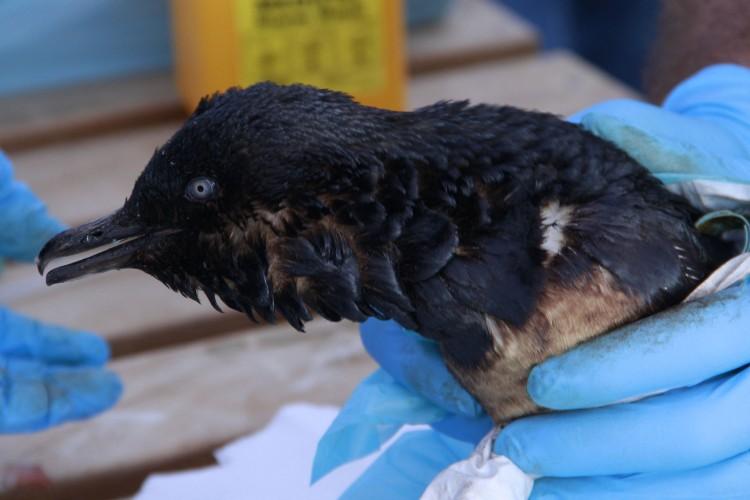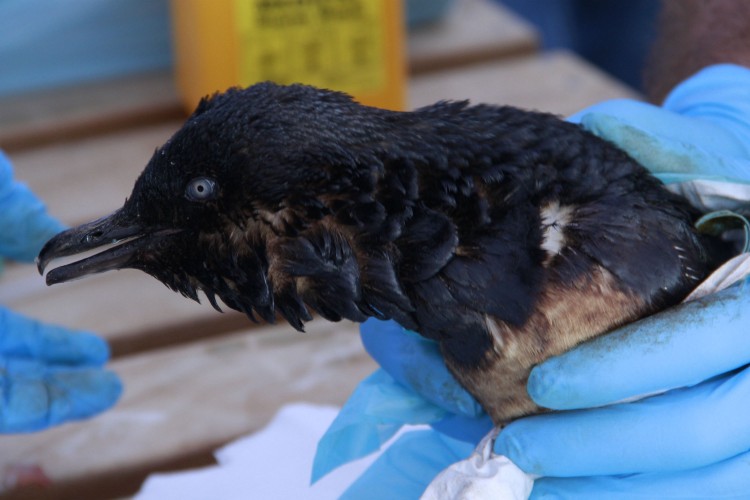Oil Spill off Tauranga Threatens Bird and Marine Life
A large oil spill off the Bay of Plenty coast is threatening wild life when the breeding season is in full swing.

Little blue penguin found at Papamoa Beach covered in oil after Liberian cargo ship Rena hit a reef on 6 October 2011 off the coast of Tauranga. Sunlive New Zealand/Getty Images
|Updated:




